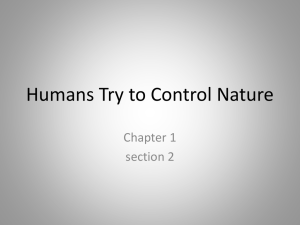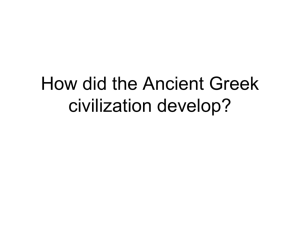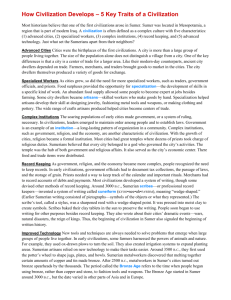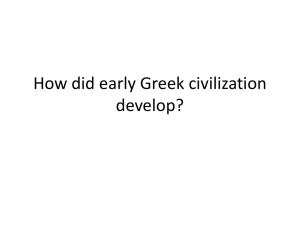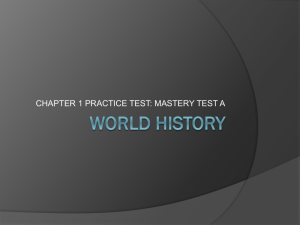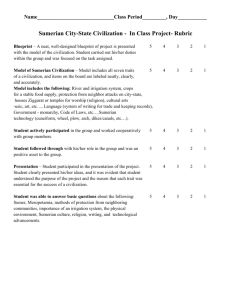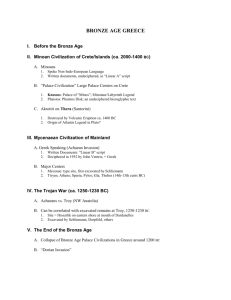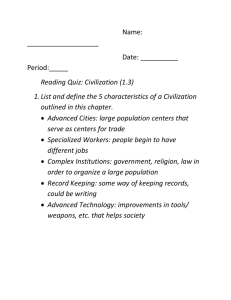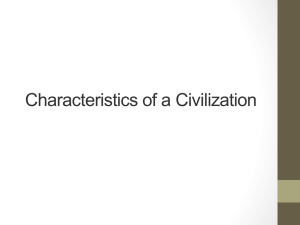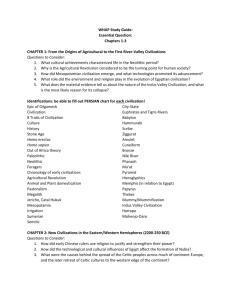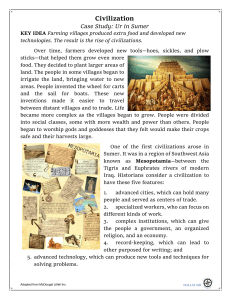Civilization Case Study: Ur in Sumer
advertisement
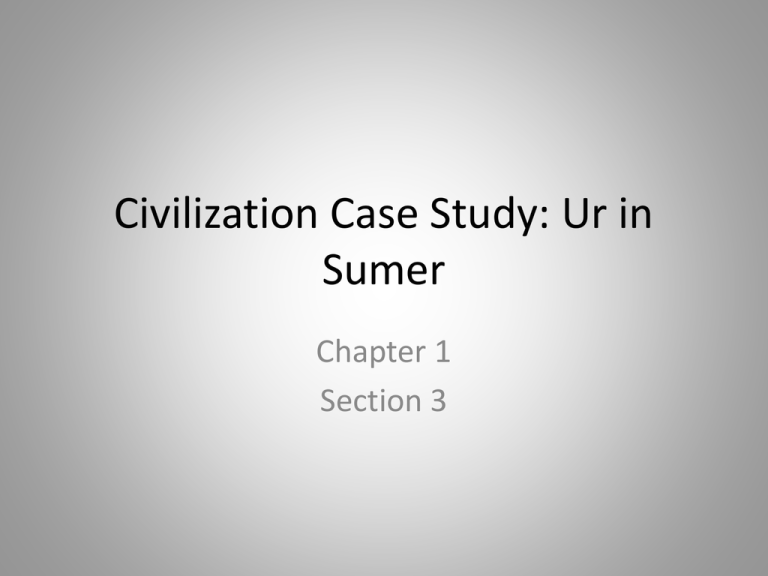
Civilization Case Study: Ur in Sumer Chapter 1 Section 3 Key Terms • • • • • • • • • Civilization Specialization Artisan Institution Scribe Cuneiform Bronze Age Barter Ziggurat Villages Grow into Cities • Economic changes – Irrigation systems for more crops – Food surplus – Develop other skills – Wheel and sail invented – Trade developed Villages Grow into Cities • Social changes – Specific groups of workers – Formed social classes – Religion more organized – Centered on nature and animal spirits – New Stone Age many gods and goddesses How Civilization Develops • • • • • • Civilizations 1-advanced cities 2-specialized workers 3-complex institutions 4-record keeping 5-advanced technology Advanced Cities • Birthplace of first civilizations • Center of trade for larger area • Depend on trade • Produced goods for exchange Specialized Workers • Specializationdevelopment of skills in a specific kind of work • Artisans- made good by hand (metal, tools, pottery) • Helped cities to become center of trade Complex Institutions • Institution-a long lasting pattern of organization in a community • Soaring populations – Formed governments – Needed to establish laws • Religion – – – – Temples Priests City belonged to the gods Served as economic center Record Keeping • • • • Document taxes Passage of law Storage of grain Keep track of calendars and rituals • Systems of writing Record Keeping • Scribes-professional record keepers • Cuneiform- meaning wedge shaped writing – Pictographs- symbols of writing – Used a sharpened reed – Baked tables in the sun – Beginning of written history (Sumer) Improved Technology • Ox drawn plows • Irrigation systems • Pottery wheel – Jugs, plates, bowls • 2500 BC metal workers – Melt tin and bronze – Made spearheads • Bronze Age-using bronze instead of copper and stone Civilization Emerges in Ur • Ur- one of the earliest cities • 30,000 residents • Agricultural – Large scale irrigation – Food surpluses • Life in the City – One story box homes – Merchants and artisans Ur’s Thriving Trade • Merchants on broad avenues • Coins are not used • Trade pots of grain for a jug of wine • Barter-the trading of goods without using money The Temple: center of City Life • Ziggurat- pyramid shaped monument means “mountain of god” • 100 steps to top • Priests conduct rituals • Sacrifice animals • Storage of grain, woven fabrics, gems • Believe in afterlife
